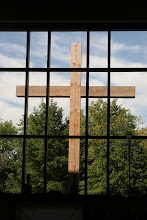In the time of King Herod, after Jesus was born in Bethlehem of Judea, wise men from the East came to Jerusalem, asking, "Where is the child who has been born king of the Jews? For we observed his star at its rising, and have come to pay him homage." When King Herod heard this, he was frightened, and all Jerusalem with him; and calling together all the chief priests and scribes of the people, he inquired of them where the Messiah was to be born. (Matthew 2: 1-4)
On a website called The Bethlehem Star, the science and truth and meaning of the star that led the wise men to Christ’s manger-bed is explored. In an effort to “set the stage” the authors of this site pose the following thoughts for us to ponder.
“THE STAR OF BETHLEHEM FASCINATES. For millennia, believers, scoffers and the curious have wondered at the Biblical account of the Star. The Bible recounts unusual or even impossible astronomical events at Christ's birth. For many doubters, the account of the Star is easily dismissed as myth. For many believers, it's a mystery accepted on faith. But what happens if we combine current historical scholarship, astronomical fact and an open mind? Judge for yourself...”
Is the star an impossible astronomical event? Would your faith in the events of Christmas be changed if you found out that the star wasn’t real, that it had been an illusion? Or even a myth?
In the introduction to “The Martin Luther Christmas Book” (translated and arranged by Roland H. Bainton) we find that Luther himself was not primarily interested in the miracles surrounding the Christmas story. Did angels really appear to the shepherds? Did, as the carol has it, “ox and ass before him bow?” Luther believed that the purpose of these stories, whether factual or fabricated, help us to understand the impact of the real miracle.
Bainton writes of Luther’s faith in real miracle of Christmas. “Christian teaching is that in Christ, God became flesh. Compared with that, no particular miracle matters much. If one could but believe that God lay in the manger, one could let go the star and the angel’s song, and yet keep the faith. The question was not whether God could or would make a special star, but why the Lord of the universe should care enough about us mortals to take our flesh and share our woes. The condescension of God was the great wonder.” (p. 12)
And suddenly there was with the angel a multitude of the heavenly host, praising God and saying, “Glory to God in the highest heaven, and on earth peace among those whom he favors!" (Luke 2: 13-14)
It is Christmas time, a halting of hate time. On this platform of peace, we can create a language to translate ourselves to ourselves and to each other. At this Holy Instant, we celebrate the birth of Jesus Christ into the great religions of the world. We jubilate the precious advent of trust. We shout with glorious tongues the coming of hope....Look heavenward and speak the word aloud. Peace. We look at the world and speak the word aloud. Peace. We look at each other, then into ourselves, and we say without shyness or apology or hesitation: Peace, My Brother. Peace, My Sister. Peace, My Soul. (From Amazing Peace: A Christmas Poem by Dr. Maya Angelou)
Monday, December 21, 2009
Subscribe to:
Comments (Atom)

